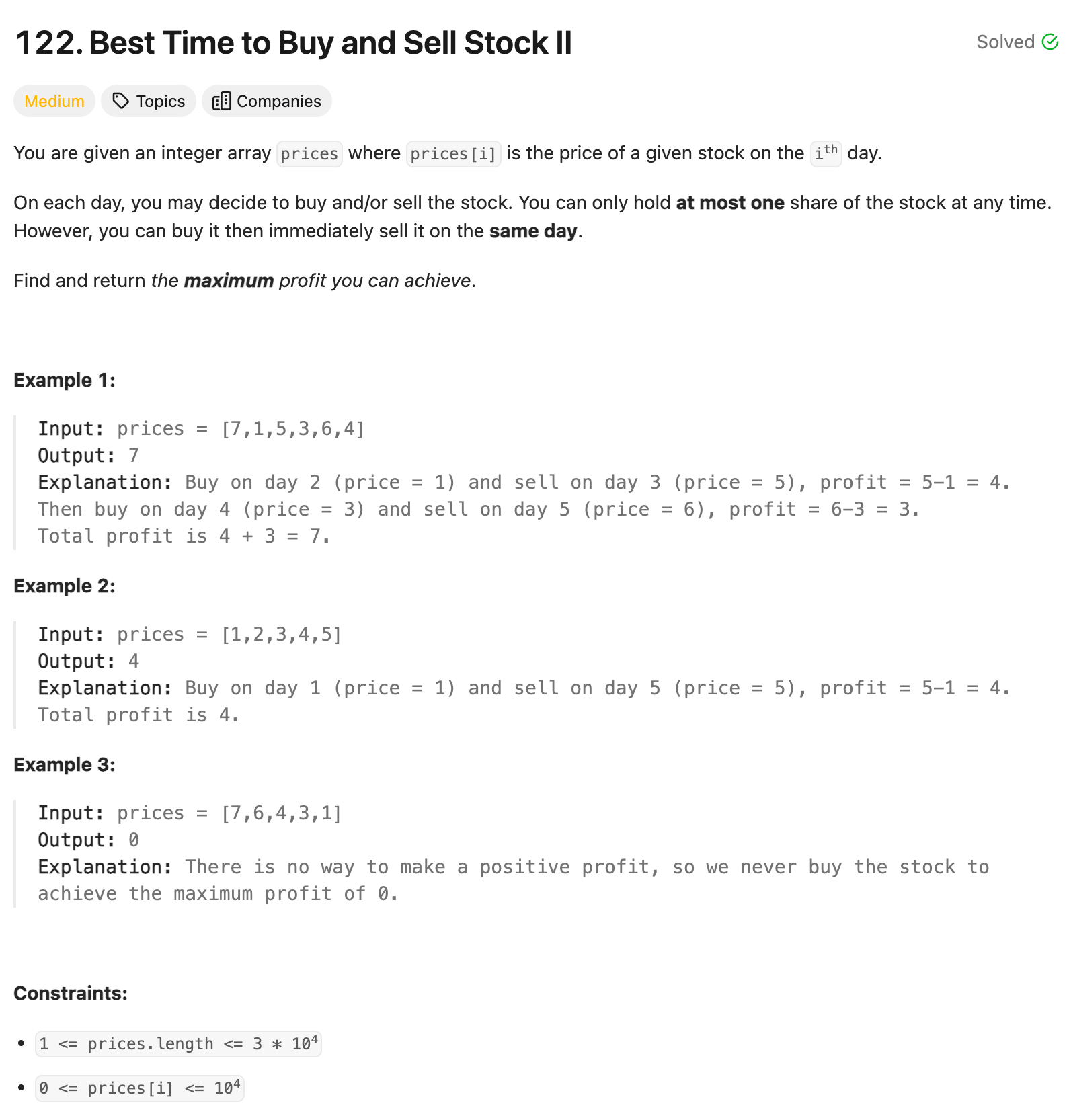Problem: Best Time to Buy and Sell Stock II
Problem Statement

TLE Approaches
Memoization
class Solution:
def maxProfit(self, prices: List[int]) -> int:
N = len(prices)
memo = defaultdict()
def dfs(i):
if i == N:
return 0
if i in memo:
return memo[i]
res = 0
curr_profit = 0
for j in range(i, N):
curr_profit = max(curr_profit, prices[j] - prices[i])
res = max(res, curr_profit + dfs(j + 1))
memo[i] = res
return res
return dfs(0)
Dynamic Programming
class Solution:
def maxProfit(self, prices: List[int]) -> int:
N = len(prices)
dp = [0] * N
for i in range(1, N):
for j in range(i):
profit = prices[i] - prices[j]
profit = profit if profit > 0 else 0
dp[i] = max(dp[i - 1], dp[j] + profit)
return dp[-1]
- Time complexity: O(n^2)
- Space complexity: O(n)
Intuition
My initial thoughts on solving this problem are to iterate through the prices, keeping track of the minimum price encountered so far. At each step, calculate the potential profit by subtracting the minimum price from the current price. Keep updating the maximum profit by considering both buying and selling scenarios.
Approach
My approach involves using two variables, min_price and min_so_far, to track the minimum prices encountered. I iterate through the prices, updating min_price and calculating potential profits. I also consider a selling scenario by tracking min_so_far. The maximum profit is updated accordingly.
Complexity
-
Time complexity: O(n), where n is the length of the prices array. We iterate through the array once.
-
Space complexity: O(1) as we use a constant amount of space, regardless of the input size. We only use a few variables to store intermediate results.
Code
class Solution:
def maxProfit(self, prices: List[int]) -> int:
min_price = float('inf')
min_so_far = float('inf')
max_profit = 0
for i, price in enumerate(prices):
min_price = min(min_price, price)
max_profit = max(max_profit, price - min_price, max_profit + price - min_so_far)
if price - min_price > 0:
min_so_far = float('inf')
min_so_far = min(min_so_far, price)
return max_profit
Editorial Solution
class Solution:
def maxProfit(self, prices: List[int]) -> int:
res = 0
# checking if the number current stock is greater than previous, just add the difference
for i in range(1,len(prices)):
if (prices[i] > prices[i-1]):
res += prices[i] - prices[i-1]
return res